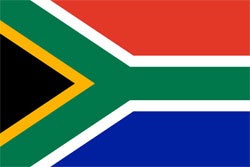The International Human Rights Clinic at Harvard Law School’s Human Rights Program has been working since 2005 on corporate Alien Tort Statute (ATS) litigation involving human rights abuses committed in apartheid South Africa.
The Clinic is co-counsel in Ntsebeza, et al., v. Daimler AG, et al., which was brought on behalf of multiple classes of South Africans who allege that Daimler, General Motors, Ford and International Business Machines (IBM) aided and abetted abuses such as extrajudicial killing, torture, cruel, inhuman and degrading treatment, and denationalization of citizens during the apartheid era.
The case is currently before U.S. District Judge Shira Scheindlin in the Southern District of New York. On April 8, 2009, Judge Scheindlin denied a motion to dismiss, clearing the way for the case against the four companies to move forward to the discovery phase.
“This case is historic in scope, and says to multinational corporations that there will be consequences for complicity in human rights abuses,” said Tyler Giannini, Clinical Director of the Human Rights Program and one of the attorneys representing the plaintiffs. Giannini is one of more than a half dozen attorneys working on the case, which includes nationally renowned ATS litigators Paul Hoffman and Judith Brown Chomsky, as well as Harvard Law School Clinical Instructor Susan Farbstein ’04.
The claims filed against the three automakers – Daimler, Ford and GM – allege that the companies aided the apartheid regime by providing armored military vehicles to violently suppress and terrorize South Africa’s black population. IBM, the fourth defendant, is charged with providing race-based identity documents that stripped black South Africans of their nationality and citizenship.
Farbstein said that student involvement in this case was essential to moving the case forward.
“The contributions of Harvard Law School students to this case cannot be understated, with students working on nearly every aspect of the litigation over the past four years,” said Farbstein.“The decisions in this case have an enormous impact on international human rights litigation in U.S. courts. Harvard Law School students can be very proud that they have been an integral part of that process.”
Dozens of Harvard Law School students have worked on this case since 2005, during all stages of the litigation. In October 2008, two HLS students – Leigh Ann Webster ’10 and Julianne Stevenson LL.M. ’09 – traveled to South Africa with Giannini as part of a fact-finding mission to prepare an amended complaint, which was filed on October 27, 2008.
Then, in January 2009, three HLS students – Kate Currie ’09), Tom Davies ’09 and Claret Vargas ’10 – worked with Giannini and Farbstein preparing the opposition brief to the Motion to Dismiss.
Davies said that students made significant contributions to both the amended complaint and the motion to dismiss brief in this case.
“It’s tremendously satisfying to see our efforts influence the development of the law in the direction of accountability for human rights violators and those who assist and enable them,” said Davies. “I want my legal career to focus on impact litigation, and on days like this I feel like I’m off to a good start.”
ATS litigation has increasingly become a focus for the International Human Rights Clinic. In addition to the Ntsebeza case, clinical students are currently working on two other ATS cases: one involving alleged human rights abuses committed by Shell Oil in Nigeria, and another against the former President and Defense Minister of Bolivia for involvement in extrajudicial killings of Bolivian citizens in September-October 2003.
Vargas said that her clinical work on ATS litigation has been an excellent forum for her to merge her classroom training with her interest in international human rights.
“One of the most interesting aspects of ATS litigation for me is that it allows us to bridge our interests in international human rights with very strong and rigorous legal advocacy training. In the Apartheid case, we worked with – and learned from – an amazing team of experts in the human rights field,” said Vargas.
Giannini and Farbstein will continue to supervise students working on this case over Summer and Fall 2009, in the discovery phase.
To view the April 8 ruling from Judge Scheindlin, click here.
